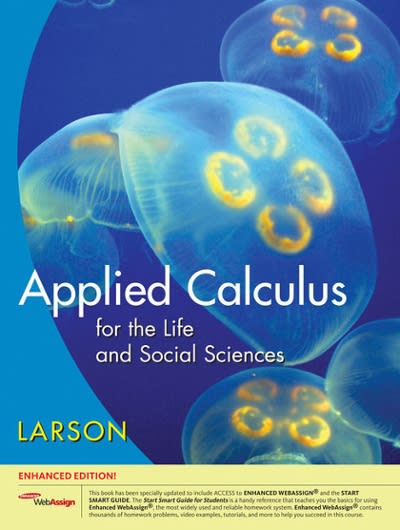Answered step by step
Verified Expert Solution
Question
1 Approved Answer
Iffis continuous on [a,b], then , where Fis any antiderivative off, i.e., = f . Here, we will prove a the evaluation theorem using


Iffis continuous on [a,b], then , where Fis any antiderivative off, i.e., = f . Here, we will prove a the evaluation theorem using the mean value theorem. Recall the mean uglue theorem, states: If is continuous on [a,b] and differentiable on (a,b), then there exists a number c with a < c < b such that f = Recall the definition Qf.a definite integral: Jab f(x)dx = lim 1. Let f (x) = 2X, andF' = f' i.e., Fis any antiderivative off. Sketch a graph of f (X) = 2 X along b with F, and illustrate on your graph that when a = 2 and b = 5. a 2. Let f be any continuous function, with antiderivative F ; i e. F' = f. Let [a, b] be an interval contained in the domain of f. Divide [a, b] into n subdivisions (sketch an example...you could use the one from #3). a. Notice that, with your sketch, we can write (Represent this on your sketch) b. Show that there is a (right-hand) Riemann sum (see definition Qf.q definite integral) using our subdivision, which is equal to F (b) F Do this by applying the mean value theorem (many times) to the right-hand side of the equation in (a) (write this in right-hand Riemann sum terms off, since F = f) b c. Deduce, from parts (a) and (b), that F (b) F (a) = f (x)dx. (Hint: how do we get from an approximate area, using a Riemann sum, to the exact area? This part is quick and painless, if you use the definition ofa definite integral)
Step by Step Solution
There are 3 Steps involved in it
Step: 1

Get Instant Access to Expert-Tailored Solutions
See step-by-step solutions with expert insights and AI powered tools for academic success
Step: 2

Step: 3

Ace Your Homework with AI
Get the answers you need in no time with our AI-driven, step-by-step assistance
Get Started


